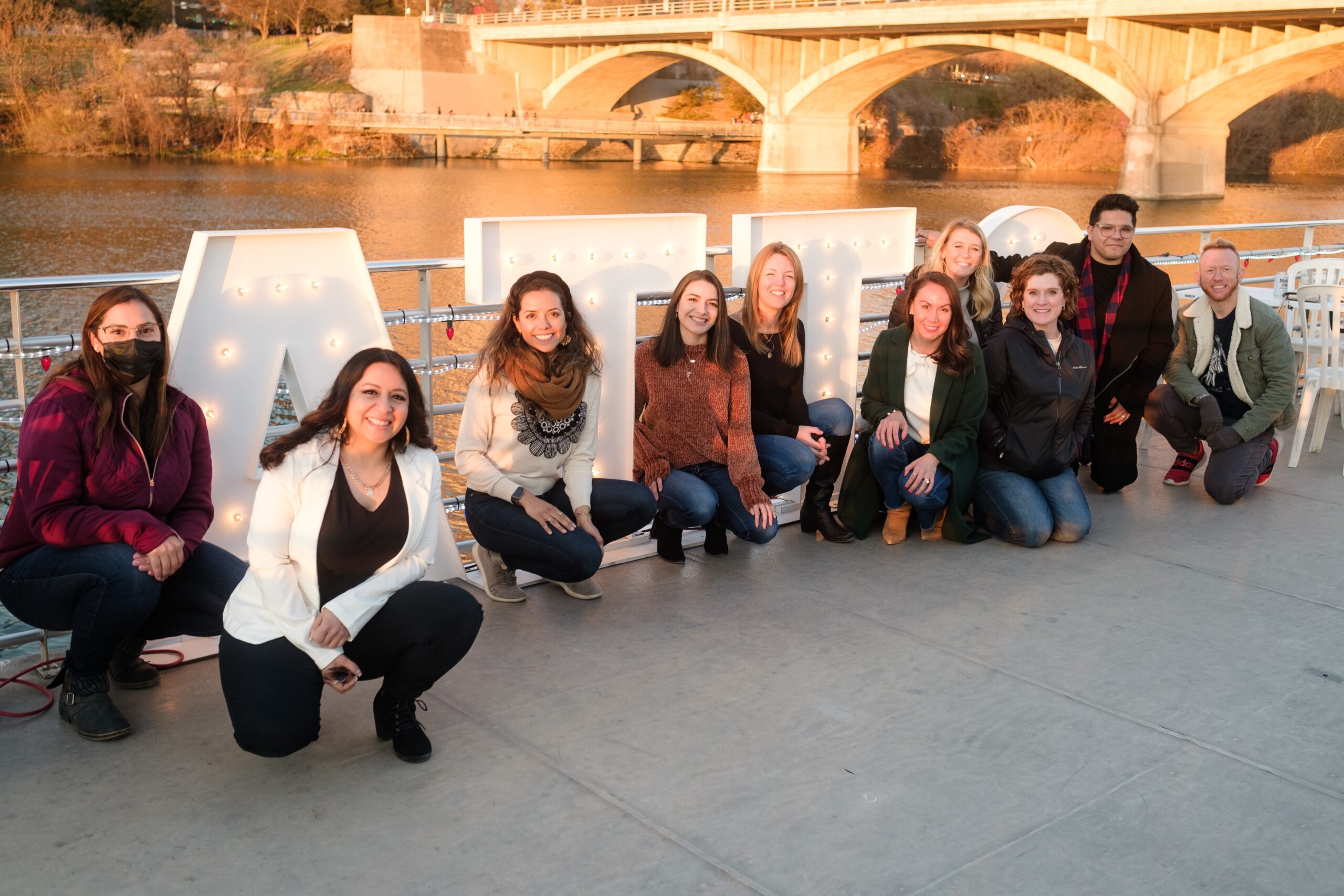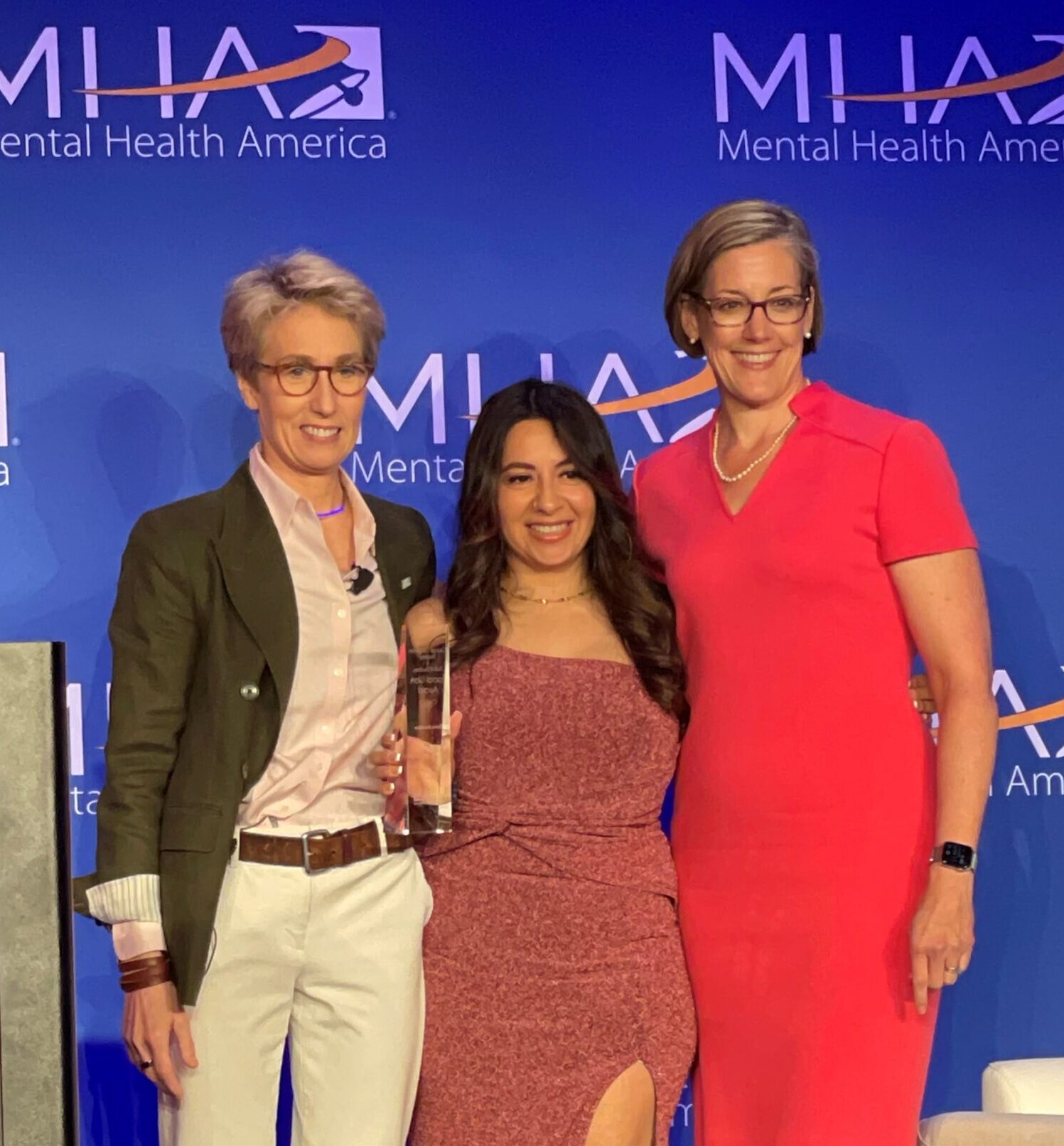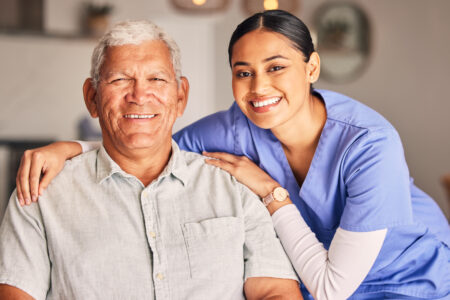
Share On Social!
“Grab what you can,” said a frantic young mother to her four children in their small rural home in El Campo, Texas.
As their mother swiftly shoved a few belongings in a bag, her four children began to grasp the seriousness of the situation and why she pulled them out of school mid-day.
It was finally their chance to get out of town and leave their abusive father – who suffered from alcohol addiction – behind.
Diana Anzaldua was one of those four children. She knew her parents struggled to make ends meet, especially since they were teen parents with mental health challenges of their own.
“We faced day-to-day domestic violence and a chaotic household. My mom, of course, was depressed,” recalled a grown Diana, who is now a licensed clinical social worker and trauma-resilient therapist.
The family left El Campo with no idea where they were going. They just knew they had to leave.
They stayed at a women’s shelter for a few weeks until they could arrange to move in with family in Austin, Texas, about 90 miles away. The year was 1990.
While the move did improve living conditions for the family, they still lacked the proper mental health support to address the trauma of what they had lived through.
As a result, Diana and her siblings soon fell into the same unhealthy behavioral patterns as their parents.
For Diana, this meant becoming pregnant at age 13 and having a son and daughter by age 15.
“I moved out after having my son and started living on my own with their dad,” Diana said. “Learning to navigate the parental world as a 16-year-old was really challenging.”
Breaking the Cycle of Generational Trauma
Despite these hardships, Diana knew she had to create the best life possible for her children.
She began working at a non-profit for at-risk youth at age 17.

“I was just filing papers back then but being exposed to that environment was really life changing for me,” Diana said. “My coworkers would ask me,’ ‘Hey, what do you want to do with your life? Do you want to go to college?’ I had never given education much thought because I had to work and make money to support my kids. But after a while, I started to think about college for myself, so I went and got my GED at age 21.”
With newfound confidence, Diana set her sights on a college degree. She took classes at Austin Community College and eventually graduated from St. Edwards University in 2012 with an undergraduate degree in psychology with a specialization in chemical dependency.
“It took me a bit because sometimes it would get overwhelming,” Diana said. “I would stop taking classes some semesters – but I would eventually come around and go back to school.”
Diana then went on to get her graduate degree in social work at the University of Texas at Austin in 2017.
All the while, she continued working with traumatized populations.
“My education and work experience really helped me to see and understand that a lot of mental health patients have a similar background as me. Lots of trauma, addiction, and oppression,” Diana said.
With her accumulated 15 years of experience in mental healthcare and her graduate-level education, Diana eventually landed a job as a lead therapist for the adolescent male unit of a neural hospital in Austin in 2016.
Her patients, including Latinos and Native Americans, were some of the most traumatized children and teens in the country.
78% of Latino kids suffer at least one adverse childhood experience (ACE), such as poverty, neglect, abuse, and household dysfunction (divorce, violence, etc.), according to a Salud America! research review. Trauma and ACEs can permanently change a child’s body and brain, which can be difficult to treat and cause lifelong health and social consequences.
“These patients were sent from other states where they couldn’t receive adequate mental health treatment,” Diana explained. “While I was there, we really managed to turn things around for the patients, we really did a lot of amazing work.”
But Diana and her team noticed that discharged patients were only successful for a short period of time at home. They were often readmitted to the hospital because their home environment didn’t support their healthy behavior changes.
Wanting to create sustainable change for these patients, Diana proposed an integrative approach in mental health treatment to her hospital supervisor.
She suggested involving parents and caregivers in patient treatment and making the extra effort to ensure a supportive home environment upon patient discharge.
However, with limited staff and resources, Diana had little support to achieve these goals, and she was overworking herself trying to create lasting change for patients.
“It began to seriously affect my own mental and physical health,” she explained.
Diana ultimately concluded that the hospital’s traditional treatment model of profit over people did not align with her values, and she needed to support her patients in a more effective way.
After three years of hard work at the hospital, she made the difficult decision to pursue new opportunities.
Advocacy and Entrepreneurship in Mental Healthcare
However, shortly after this career change, COVID-19 swept the nation.
While this was certainly a challenging time, stay-at-home orders and other restrictions gave Diana time to think about how to move forward in her career. She envisioned a “one-stop shop” facility where patients could access specialized mental health services all in one place.
“Most of the time, if somebody needs specialized treatment, they must go to multiple specialized providers. As someone who has struggled with getting specialized mental health treatment myself, I know how traumatizing it is to have to share your story multiple times,” Diana said.
Additionally, Diana emphasized the importance of mental health providers being trauma-informed and trauma-competent, meaning that they can provide care without judging patients for their condition or re-traumatizing them. If care re-traumatizes a person, it can cause more harm and significantly impact the healing process.

With these ideas in mind, Diana began developing Austin Trauma Therapy Center in 2019 and slowly started hiring staff. As the importance of virtual mental healthcare grew amid the COVID-19 pandemic, Diana was able to hire more therapists and specialty providers to collaboratively treat traumatized populations.
Today, Austin Trauma Therapy Center offers hybrid trauma therapy, which consists of both in-person and virtual sessions. The center has grown to 20 trauma-informed therapists and five integrative health professionals all dedicated to whole-person wellness and providing care for marginalized groups.
The integrative health professionals include a nurse practitioner, a yoga therapist, an ADHD coach, and a nutritionist. Soon, Diana hopes to add a sound therapist to her team.
“I believe it is important to provide care that aligns with the client’s preferred method of healing,” Diana said. “When we tell clients what they need, rather than allowing them to have autonomy and choose their own form of healing, it can be traumatizing, and we do not operate in that way.”
Learn more about Austin Trauma Therapy Center.
Addressing Disparities in Mental Healthcare
While Diana certainly enjoys her important work at Austin Trauma Therapy Center, her true passion is her Latino-focused non-profit, Contigo Wellness, which was also born out of the pandemic.
In line with Diana’s belief in an integrative approach to mental health treatment, Contigo Wellness helps Latinos build their own care team of providers to address their unique mental health needs.
In doing so, Contigo Wellness operates from an anti-racist, decolonized lens, meaning that all healers in Contigo Wellness’ network offer inclusive, non-judgmental care.
Healers within Contigo Wellness’ network include non-traditional providers, such as sound healers, massage therapists, energy healers, and more.
“We’re all different and we’re going to need different forms of healing,” Diana explained. “For me personally, I have an entire spiritual team, including a Reiki practitioner and a massage therapist.”
Operating from an anti-racist, decolonized lens also includes addressing barriers to mental health treatment, such as finances, work schedules, mental health stigma, and a lack of access to culturally competent care. These inequities are especially common in the Latino community.
Contigo Wellness addresses these barriers by “meeting patients where they are” by providing financial assistance for treatment through the “Healing Fund,” connecting patients to Spanish-speaking providers, and having flexible treatment sessions outside traditional working hours.
“In this model, we come to the community to provide care, rather than have them come to an office to receive care. This is one way we’re co-creating non-hierarchical healing spaces,” Diana said.
Learn more about Contigo Wellness.
America’s Mental Health Crisis
While Latinos and other people of color are disproportionately impacted by a lack of mental health resources, America’s mental health crisis is well documented in people of all ages and backgrounds.
Prior to the COVID-19 pandemic, mental health providers were already stretched thin. Now, there’s an even greater demand for mental health support because of the pandemic’s added hardships.
“The COVID-19 pandemic stimulated a healing movement, so we’re seeing more and more first-timers seeking therapy, which is contributing to the therapist shortage and longer wait times,” Diana said.
Waiting to see a professional can lead to worsening symptoms.
That’s why Diana and her team at Austin Trauma Therapy Center work hard to see patients within two weeks – which beats many average wait times of several months. Patients who use Contigo Wellness are also seen as promptly as possible.

While the mental health crisis won’t get better overnight, one of the best ways to alleviate its negative impacts is to speak more openly about mental health – especially in the Latino community – to decrease stigma.
“We must normalize mental health. It’s OK to say, ‘I’m not OK,’” Diana said. “We must also reframe the language we use to talk about mental health and refrain from using words like ‘crazy.’ No one’s crazy. Our behaviors are all rooted in trauma and old or unhelpful patterning likely from childhood.”
For instance, Diana reflected on her two brothers and how a lack of mental health support to address their trauma contributed to their incarceration.
To help them get on the road to mental health recovery, Diana created a therapy workbook for her brothers, and eventually released the workbook for anyone to use.
“My Work Inspires Me Every Day”

Diana strongly believes that mental health treatment should be accessible for everyone, no matter who you are or where you come from.
As a testament to her advocacy work for mental health treatment among disadvantaged populations, Diana was awarded the George Goodman Brudney and Ruth P. Brudney Social Work Award from Mental Health of America on June 9, 2023. The award recognizes those who have significantly contributed to the care and treatment of people with mental illness.
“This award is symbolic to the social justice work I am passionate about and field I am dedicated to,” Diana said. “It’s an honor to be recognized for creating a space that provides safe healing for all.”
Explore More:
Mental HealthBy The Numbers
142
Percent
Expected rise in Latino cancer cases in coming years
This success story was produced by Salud America! with support from the Robert Wood Johnson Foundation.
The stories are intended for educational and informative purposes. References to specific policymakers, individuals, schools, policies, or companies have been included solely to advance these purposes and do not constitute an endorsement, sponsorship, or recommendation. Stories are based on and told by real community members and are the opinions and views of the individuals whose stories are told. Organization and activities described were not supported by Salud America! or the Robert Wood Johnson Foundation and do not necessarily represent the views of Salud America! or the Robert Wood Johnson Foundation.



